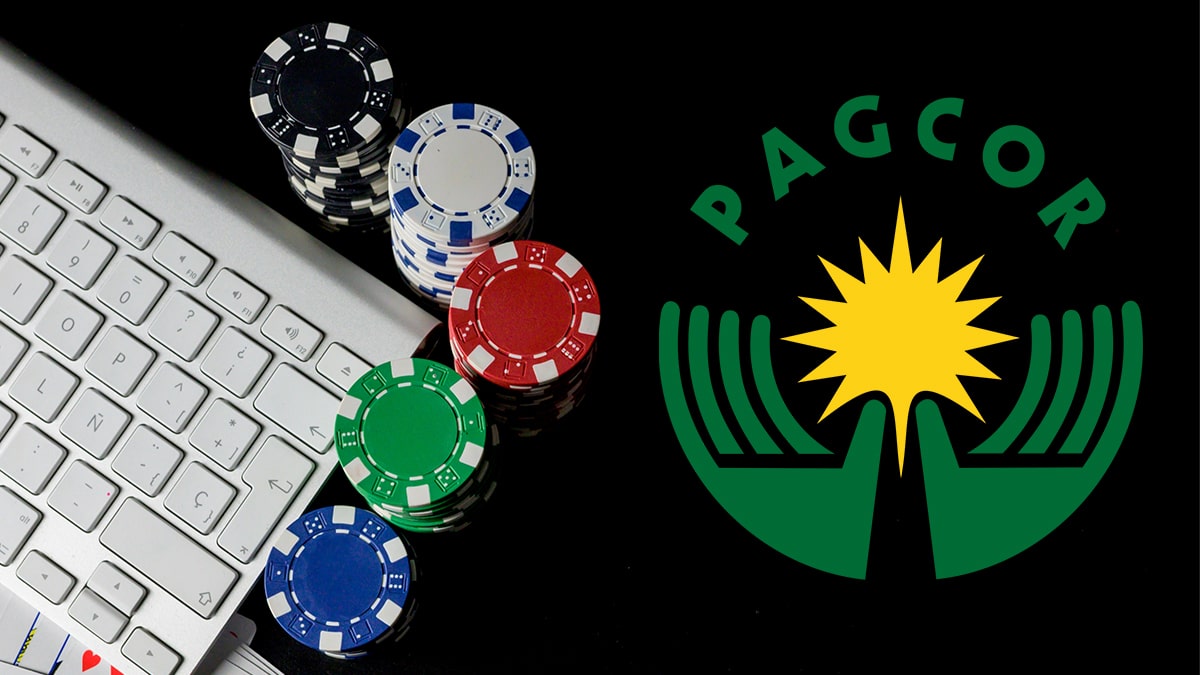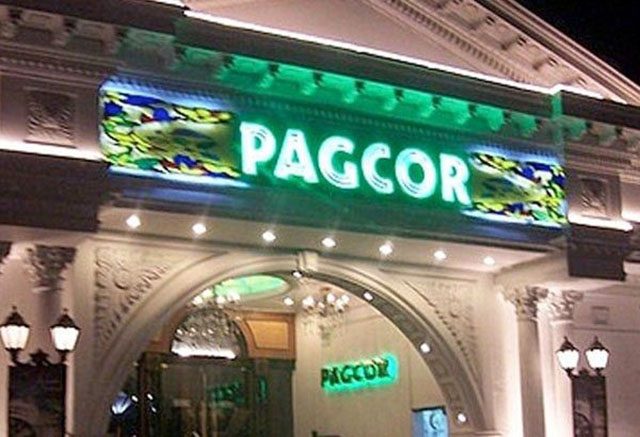Pagcor Online Casino
PAGCOR's main office along Roxas Boulevard in Ermita, Manila | |
| Type | Public |
|---|---|
| Industry | Casino |
| Founded | 1977 |
| Headquarters | Philippines |
| Andrea D. Domingo (Chairman and CEO)[1] | |
Number of employees | 11,000+ |
| Website | www.pagcor.ph |
Under the rules, a PAGCOR casino, is only mandated to accept locals for play within the facility and not for the online gaming environment. The main reason for this is the existing laws of the country that prohibit these casinos from accepting wagers from the players from the Philippines to enjoy the games online. The Philippines gaming regulator (PAGCOR) has played a key role in offsetting the economic impact the Covid-19 pandemic has inflicted on the country, remitting an estimated $354 million to the Bureau of the Treasury through December 15, 2020, Inside Asian Gaming reported.
Philippine Amusement and Gaming Corporation (PAGCOR, Filipino: Korporasyon sa Libangan at Palaro ng Pilipinas[2]) is a government-owned and controlled corporation established through the Presidential Decree 1869.[3] PAGCOR is the Philippines' largest contributor of revenue to the government after the Bureau of Internal Revenue and the Bureau of Customs.
PAGCOR is under the Office of the President of the Philippines.[4]
History[edit]

After its establishment, PAGCOlippine Casino Operators Corporation (PCOC) for the operation of the floating casino in the Manila Bay in 1977. However, after the floating casino was gutted by fire in 1979, PAGCOR shifted its focus to land-based casinos and entered into another contract with PCOC for the management of a casino at the Provident International and Resources Corporation (PIRC) building on Imelda Avenue, Parañaque City, Metro Manila, Philippines. Then, under Presidential Decree 1869, decreed in 1983, it was mandated to act as the sole government corporation conducting and establishing gaming pools and casinos in the country.[3] In 1986, it was re-established and reorganized by Philippine President Corazon C. Aquino as a New PAGCOR to help raise funds for the government; Norberto Quisumbing was appointed as its first Chairman, followed by the former Development Bank of the Philippines chair Alicia LL. Reyes as its Chair and CEO. Reyes was succeeded by Ephraim Genuino under the appointment by Philippine President Gloria Macapagal-Arroyo in 2001.
The firm operates its own casinos and several VIP slot clubs in major cities across the country. It also oversees and regulates privately owned casinos, more than 180 bingo parlors, as well as e-games cafes across the country. The company employs more than 11,000 workers. In June 2007, PAGCOR gained from a piece of legislation, Republic Act 9487, which granted the state-run gaming firm, then under the leadership of Chairman Genuino, another 25 years to regulate and operate games of chance, to issue licenses, and to enter into joint venture, management, or investment agreements with private entities for the Entertainment City in the Manila Bay area, Parañaque, and in Newport City, Pasay, in particular.[5] Chairman Genuino successfully attracted investors to the project to put up Las Vegas-style integrated resorts. Two integrated resorts opened on November 1, 2014.

On July 13, 2018, PAGCOR announced the appointment of Attorney Angeline Papica-Entienza as the head of the agency’s Gaming Licensing and Development Department and as the assistant vice president of the corporation.[6]
List of chairpersons[edit]

- Norberto B. Quisumbing (1986)
- Alicia L. Reyes (1987 – 2001)
- Efraim C. Genuino (2001 – 2010)
- Cristino L. Naguiat Jr. (2010 – June 2016)
- Andrea D. Domingo (July 2016 – present)[7]
References[edit]
- ^'THE NEW MANAGEMENT'. www.pagcor.ph. Archived from the original on 3 July 2011.
- ^Narvaez, Eilene Antoinette; Macaranas, Edgardo, eds. (2013). Mga Pangalan ng Tanggapan ng Pamahalaan sa Filipino(PDF) (in Filipino) (2013 ed.). Komisyon sa Wikang Filipino. p. 42. ISBN978-971-0197-22-4. Retrieved December 19, 2019.
- ^ ab'FOURTEENTH CONGRESS OF THE REPUBLIC OF THE PHILIPPINES 1 First Regular Session'(PDF). senate.gov.ph. 2007. Retrieved 25 May 2017.
- ^'GOCC Profile - Integrated Corporate Reporting System'. Integrated Corporate Reporting System. Retrieved 18 March 2020.
- ^'Republic Act 9487'. The LawPhil Project. 20 June 2007. Retrieved 18 March 2020.
- ^'PAGCOR Changes Gaming Licensing Unit Lineup - Top Casino Picks'. Top Casino Picks. Archived from the original on 10 August 2018. Retrieved 10 August 2018.
- ^'Andrea Dizon Domingo Resume'(PDF). Philippine Amusement and Gaming Corporation. Retrieved 13 August 2019.
| Wikimedia Commons has media related to Philippine Amusement and Gaming Corporation. |
Presidential Decree Number 1869 was created under President Ferdinand Marcos and signed on July 11, 1983. This Decree also became known as the PAGCOR charter as it aimed to consolidate all previously enacted legal instruments concerning the operations of the Philippine Amusement and Gaming Corporation and the regulation of Philippine games and gambling activities.
Before Presidential Decree No. 1869, in 1976, casinos only operated along Dewey Blvd and in cities like Bacolod, Davao, and Cebu all operating as their own entities which created the need for a united regulatory agency. PD No. 1869 quickly was integrated as a key Philippine gambling law as it amended PD 1067-A, PD 1067-B, PD 1067-C, PD 1399, and PD 1632.
Pagcor Online Casino Slots
PD No. 1869 mandated PAGCOR to act as the sole government corporation conducting and establishing gambling offers within the Philippines. Therefore, the Decree mainly facilitated the enforcement and application of the above-mentioned Presidential Decrees by fusing loose stand-alone instruments under one statute through Congress’s granted franchise charters. PD No. 1869 strengthened PAGCOR to become the central oversight board for Philippine gaming that it is today.
Under Presidential Decree No. 1869, specific lists of priority projects were outlined and indicated that the funding of such beneficial public works projects would come directly from the earnings of PAGCOR. The Decree covers information on the powers and functions of PAGCOR, its franchise, activities, and regulatory privileges.
Under Presidential Decree No. 1869, PAGCOR is designed to operate and regulate all gaming forms within the Philippines. However, Decree No. 1869 did not limit PAGCOR’s franchise powers to the operation of gambling casinos alone as the Decree tasked PAGCOR to promote and attract tourism, mainly gambling tourism.
The revenue which PAGCOR generates through legal casinos assists in financing socio-civic, public, and national development. To facilitate revenue growth PAGCOR has positioned itself as an investment, tourism, and economic organization; in order to grow the welfare of the Filipino public PAGCOR must provide lucrative investment opportunities through casinos and draw enough attraction and tourism dollars on its own that investors are interested to then be able to redistribute the wealth generated through profits.
How Does PD No. 1869 Affect Casino Gambling in the Philippines?
Pagcor Online Casino Games
Presidential Decree No. 1869 effectively prohibits any government employees, government officials, members of the Philippine Armed Forces, members of the Philippine National Police, persons under the age of 21, and Philippine school, college, or university students from entering and playing in Philippine casinos.
This is specifically to keep out easily corruptible and vulnerable members in Filipino society. This is further reinforced by descriptions within the Decree that allow residents access to land-based casinos if said resident made at least PHP50,000 in the previous year, this discourages impoverished residents from visiting casinos and gambling away their life savings.

Otherwise, patrons and gamblers would need to pay hefty entrance fees to even begin to gamble. Those also barred from entering and gambling at casinos are employees of agencies that are directly involved with government operations. On December 12th, family members were also included in the list of ineligible casino players. Individual casinos could face a fine of PHP100,000 per person if caught in violation, casinos also risk being shut down for repeated or major violations.
The Effect of PD No. 1869 on Philippine Online Casino Gambling
This gaming law does not affect legal offshore online Philippine casino gambling. In fact, the main objective of PD No. 1869 is to create a blanket regulatory agency for domestically-based gambling, whether on land, ship or online. Therefore, Presidential Decree 1869 does not give PAGCOR permission to regulate legitimately licensed offshore online and/or land-based operations as they are clearly outside of PAGCOR’s jurisdiction.
Pagcor Online Casino Bingo
Therefore, Filipino bettors and players can access online casinos from offshore servers and platforms no matter their occupation. However, Philippine-based online casinos remain illegal so ensure gaming destinations are licensed and based from an offshore agency for lawful online gambling.

Outcome Of Presidential Decree 1602
Pagcor Philippines Online Casino
PD 1869 effectively made Philippine gaming rules applicable and enforceable under the official formation of PAGCOR. The law also specifically outlined members of Philippine society barred from domestic gambling activity, which in some cases curbed internal corruption and set an example by punishing high-level officials caught violating PD 1869.
Pagcor Licensed Online Casino
By centralizing regulation, control, and oversight to one agency (PAGCOR) instead of spread across individual districts, the Philippine government is able to pin-point accountability and manage nation-wide operations easily.